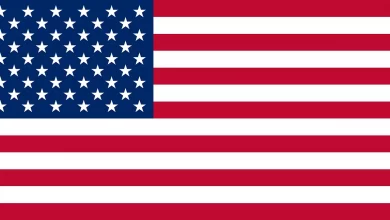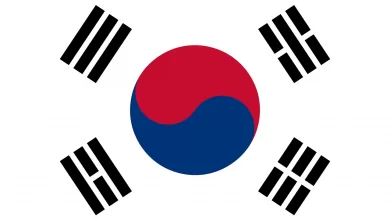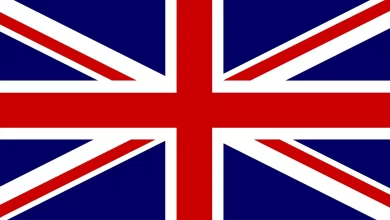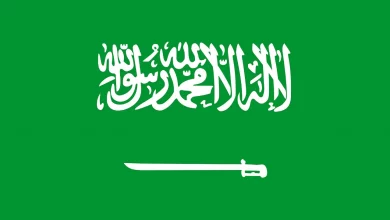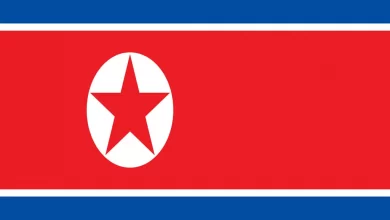India is a diverse and vibrant country located in South Asia, known for its rich cultural heritage, historical significance, and geographical variety. It is the world’s most populous democracy and the seventh-largest country by land area. India is renowned for its cultural diversity, with over 2,000 distinct ethnic groups and more than 1,600 spoken languages. The country has a long history that dates back to the Indus Valley Civilization, one of the world’s oldest urban cultures. Its historic landmarks, such as the Taj Mahal and the ancient city of Varanasi, attract millions of tourists annually. India’s economy is one of the fastest-growing in the world, driven by sectors like information technology, agriculture, and manufacturing. The country’s democratic framework, a blend of traditional and modern values, and its dynamic society contribute to its unique position on the global stage.
- India shares land borders with several countries like Bhutan, Nepal, China, Pakistan, and Afghanistan in the north or north-west, and Myanmar and Bangladesh in the east.
- Vasco da Gama, a Portuguese explorer, was the first European to come to India in 1497.
- The world champion and grandmaster of chess is an Indian player known as Viswanathan Anand. He became the first grandmaster from India in 1988, and is one of the few players to have surpassed an Elo rating of 2800.
- India has the most number of vegetarians in the world, comprising 31%-33% of the total population.
- The country also has the world’s lowest meat consumption per person.
- The country is the biggest democracy on the planet.
- India has the biggest postal system in the world, comprising 1,55,618 post offices and over 5,66,000 employees.
- There is also a floating post office which is on the dull lake, Srinagar, and was inaugurated in August 2011.

Mike Prince from Bangalorevia Wikimedia Commons (Floating Post Office, Dal Lake, Srinagar) - The country also has the highest altitude post office, which is at Hikkim, part of Lahaul and Spiti district of Himachal Pradesh. It is located at an elevation of 15,500 feet.
- Children’s Day is celebrated in India on November 14th. It is celebrated on this Day because it is the birthday of the country’s first prime minister, who used to love children.
- The national animal of the country is the Bengal tiger.
- For more than 3000 years, the physician of old times used to close wounds with the help of carpenter ants.
- The Indian railways is the 9th biggest employer in the world. At the same time, the Ministry of Defense of India sits on the top of the charts in terms of biggest employer on the planet.
- The Baily Bridge is the highest elevation bridge in the world. The bridge is located at the Ladakh valley in the union territory of Ladakh.
- Diamonds were first discovered in the riverbeds of the Golconda region of India in the 4th century B.C.
- Worlds 70% of spices come from the country.

Garam Masala Ingredients ©Pixabay - In India, it is illegal to slaughter a cow and sell or consume cow meat.
- In the early 17th century, the country was the wealthiest nation in the world until the British invaded the country.
- The Arabic numerals system was invented by Indian Hindus and not the Arabs.
- The largest school in the world is the City Montessori School in the Indian city of Lucknow and has over 25,000 students in grade levels ranging from kindergarten to college.
- The Indian Lok Sabha elections (parliament elections) are the biggest elections globally, which happen every five years.
- India is the only country that setups an election booth for a single person. The election booth is set up in Gir forest.
- Out of the 20 most polluted cities in the world, 14 are Indian cities.
- The country has the 2nd most extensive road network on the globe with about 5,903,293 km of roads. The country railway network is the 4th biggest in the world.

Planemad via Wikimedia Commons (India’s Vast Road Network) - Breathing the air in Bombay, India, is equivalent to smoking four cigarettes a day. While breathing in Delhi, the capital city, is equivalent to smoking thirty-three cigarettes a day.
- According to the Hindu calendar, there are over six seasons in the country: spring, summer, monsoon, autumn, winter, and prevernal.
- It’s illegal for non-Indian citizens to take currency out of the country.
- In a state of central India, policemen are paid a salary bonus to have a mustache.
- Shampoo was first invented and used in India; the first shampoo was not the commercial liquid but was made out of herbs. In fact, the word ‘shampoo’ is derived from the Sanskrit word champu, which means to massage.
- There are some other inventions that Indians made, such as the electronic mailing system(e-mail), The USB, the numeric Zero, Chess, Hookah, Human development index, solid-propellant rocket, JPEG file extension, millimeter wave, wet grinder, and crystal radio.
- Indians also made significant contributions to branches of mathematics like calculus, trigonometry, and algebra were developed on this land. The decimal system was invented in India in 100 B.C.
- Kanchenjunga is the highest mountain peak in India and 3rd most elevated on the planet. It has an elevation of 8,586 m (28,169 ft). It is located in the state of Sikkim, which lies on the border of India and Nepal.

Kanchenjunga Mountain Peak ©Pixabay - The country has won all five men’s kabaddi world cups which are held till date. The women team also has won all the world cups till now.
- The national sport of India is hockey. However, the most popular sport is cricket, and the country has won the world cup of cricket two times, the t-20 world cup 1 time, champions trophy one time.
- In September 2009, the Indian space and research organization(ISRO) launched a moon chandrayaan-1 which found water on the moon for the first time.
- The mangalyaan of ISRO was the cheapest mission among all countries to the red planet Mars.
- The father of India’s missile program Dr. APJ Abdul Kalam, who was also the president of the country and known as the missile man of India, had visited Switzerland back in 2006.
- Upon arrival of Dr. APJ Abdul Kalam, Switzerland declared May 26th as their Science Day.
- India is the second-largest English-speaking country on the planet.
- Kumbh Mela is the world’s biggest human gathering, with over 60-80 million people visiting this auspicious Hindu festival. It happens every 12 years on the banks of the Ganges river. It can also be seen from space through satellite imaging.

Gathering at Kumbh Mela ©Pixabay - India is the largest producer of milk on the planet earth. The total production of milk in the year 2018 was about 186.1 million tonnes.
- It was the first country to develop the technique of extracting and purifying sugar. Many visitors from abroad learned the refining techniques and cultivation techniques from the country.
- Shakuntla Devi was an Indian mental calculator also known as the human-computer. She is a Guinness world record holder, and in 1980 she calculated a number which was given by the imperial college London. She was told to calculate a random number which was 7,686,369,774,870 × 2,465,099,745,779, and she mentally calculated the number in just 28 seconds which recorded a place in Guinness world record.
- The country has the third-largest Muslim population in the world, which is also the world’s largest Muslim minority population. India is home to 10.3 % of the total Muslim population of the world.
- The country’s religious breakdown comprises Hinduism 79.80%, Muslims 14.23%, Christianity 2.30%, Sikhism 1.72%, Buddhism 0.70%, Jainism 0.37%, and 0.9 % others or not specified.
- Being a Hindu country ranks 2nd in terms of mosques after Indonesia. The country has about 3,00,000 mosques.
- The airline company in India known as “Go Air” hires female flight attendants because they are lighter in weight than the males. Because of this, the company saves around US$500,000 per year in fuel.
- Indian housewives hold 11% of the World’s Gold. That is more than the reserves of the United States, IMF(International Monetary Fund), Germany, and Switzerland put together.

Indian wedding bride with Gold ornaments ©Pixabay - The Golden Temple (Sikh community’s biggest shrine) in India feeds a vegetarian meal to over 1 Lakh people a day regardless of race, religion, and class, which makes it the largest free eatery in the world.
- In 2009, a doctor in India recorded its place in Guinness world records removed 172,155 stones from a patient’s left kidney during a three-hour surgery.
- There’s a village in India that is considered the strongest village in the country as it produces the most bouncers and bodyguards of New Delhi’s nightclubs.
- According to a study of 2013, 74% of young Indians prefer an arranged marriage over a free-choice one.
- The country has the largest youth population in all of the world. There are 356 million young people living in India.
- The country has the lowest divorce rates in the world; only about 1 out of 100 marriages end up with a divorce.
- India has the 2nd most internet users in the world, just after China.
- The Himalayan mountain range is the biggest and tallest mountain range in the world and still growing at a rate of 2.5 Cm a year. The Indian part of the Himalayan mountains stretches over a distance of 5 lakh km square.

Aalokshishya via Wikimedia Commons (The great Himalayan mountain range from a flight) - During World War 2, India produced the largest volunteer army in world history with over 2.5 million men. At least 38 Indians received the Victoria Cross or the George Cross.
- There are about 3,43,000 millionaires and 138 Billionaires in India. However, 68.8% of the total population lives under $2/ day.
- India is the third most unequal country on the planet in terms of the rich and poor gap.
- The earliest cotton was weaved in India in around 4000 BC, and the dyed fabrics date back to 2500 BC.
- In ancient and medieval India, sati system spelled as suttees was prevalent in the society. According to this practice a recently widowed woman would immolate herself on her husband’s funeral pyre and this practice was very common.
- India’s film industry, ‘Bollywood’ based in Mumbai, is the 5th biggest industry in the world. It also produces the most number of movies in a year.
- India has 36 UNESCO world heritage sites, making India the 6th country to have the most heritage sites in the world.
- There is a temple in the country’s capital city, which is sacred to both Hindus and Buddhists, known as the lotus temple. The temple has 27 gigantic petals that are entirely covered in marble.

Lotus Temple, New Delhi ©Pixabay - The first plastic surgery took place about 4000 years ago in the Indus valley civilization of India.
- The official name of the country is the Republic of India. India’s name is derived from the river Indus, most likely taken from the Sanskrit language word Sindhu, meaning the river. The other names of the country in local languages are Bharat, Hindustan, Jambudweepa, Al-Hind, Tenjiku, and Aryavarta.
- Hindi and English are the official languages of India. There are 17 other local languages that are widely used, which are Assamese, Bengali, Gujarati, Nepali, Manipuri, Konkani, Kannada, Kashmiri, Malayalam, Marathi, Oriya, Punjabi, Sanskrit, Sindhi, Tamil, Telugu, and Urdu. Apart from these languages, there are about 1,652 dialects that are spoken in the country.
- The country also has a national fruit which is mango. At the same time, the national bird is the peacock.
- India has ten big rivers that are greater than 600 miles (965km) and stands at the 6th spot in terms of having most rivers.
- India is the 2nd largest tea producer on planet earth, just after China.
- The biggest family in the world lives in India. The family lives in batwing, India, and has 39 wives and 94 children. He lives in a four-story 100 room house with another 14-daughter-in-law and 33 grandchildren.
- Varanasi is considered one of the ancient cities in the world and is the oldest continuous inhabiting city in India.

Marcin Białek via Wikimedia Commons (Varanasi Munshi Ghat) - India’s biggest exports include refined petroleum ($86.2 billion), diamonds ($25.9 billion), packaged medicines ($19.5 billion), jewellery ($12.6 billion), and rice ($11.1 billion), with the majority going to the United States ($82.9 billion), United Arab Emirates ($31.6 billion), the Netherlands ($17.6 billion), China ($15.3 billion), and Bangladesh ($13.8 billion).
- India’s biggest imports include crude petroleum ($170 billion), coal briquettes ($58.7 billion), gold ($35.8 billion), petroleum gas ($32 billion), and diamonds ($26.1 billion), with the majority coming from China ($110 billion), the United Arab Emirates ($51 billion), the United States ($48.5 billion), Saudi Arabia ($46.2 billion), and Russia ($40.4 billion).
- The country has the 2nd most arable land in the world. It has a total of 9.22% of the arable land of the world.
- Mumbai is the densest city in the world, with 76,790 people per square mile, and Kolkata is the 2nd most densely populated country in the world.
- The most expensive house on the globe is in Mumbai city and is owned by the richest man of India, Mukesh Ambani. The mansion’s name is antilia, Mumbai, and it cost more than 1 billion. The mansion is of 27 stories and is 570 feet high.
- India is the third-largest consumer of oil on the planet.
- India levies one of the highest tax rates on automobiles among most countries of the world when compared with goods and services tax (GST) equivalent, Value Added Tax (VAT). Two Wheelers and Cars attract 28% GST and a cess in the range of 3-22%, leaving the effective tax rate to up to 50%.
- Sanchi stupa is the oldest stone structures in India, and the construction dates back to the 3rd century BCE. It is one of the oldest Buddhist monuments in the country and the largest stupa at the site.

Suyash Dwivedi via Wikimedia Commons (Monument of Sanchi Stupa)
Quick Facts about India
- CAPITAL CITY: New Delhi
- POPULATION: 1.417 billion (2022)
- POPULATION RANK: 2nd
- LARGEST CITY: Gwalior
- OFFICIAL LANGUAGES: Hindi and English
- GDP NOMINAL: 3.417 trillion USD (2022)
- GDP RANK: 5th
- CURRENCY: Indian rupee
- FOUNDED: August 15th, 1947
- FATHER OF THE NATION: Mahatma Gandhi
- TOTAL AREA: 3.287 million km2
- AREA RANK: 7th worldwide
- CONTINENT: Asia
- AVERAGE LIFE EXPECTANCY: 69.16 years
- ARMY STRENGTH: 14,43,921
- ARMY RANK: 4th
- LITERACY RATE: 76.32%
- PER CAPITA INCOME: 8,230 PPP dollars (2022)
References
- Britannica-India
- Wikipedia-India
- Youtube(biggest postal system in the world and the highest post office)
- Wikipedia-Viswanathan Anand(world greatest chess player)
- Wikipedia-List of the largest Employers
- Wikipedia-Road Network of Countries(2nd biggest road network in the world)
- Wikipedia-Baily Bridgehighest elevation bridge in the world)
- brilliance.com(Diamonds were first found in India)
- Newgeography.com(till 17th century the country was the richest in the world)
- Wikipedia-Arabic numeral system
- Carnegieendowment.org(the biggest elections in the world)
- economictimes.indiatimes.com(one man one voting booth)
- iqair.com(most polluted cities in the world)
- Hindustantimes.com( breathing in mumbai is equal to 4 cigarettes a day)
- Businessinsider.in( breathing in delhi is equivalent to 33 cigarettes)
- www.ritiriwaz.com(hindu calender has 6 seasons)
- Telegraph.co.uk(Police men are paid an extra bonus for having moustaches)
- Wikipedia-indian Inventions(inventions by indians)
- Indiatvnews.com(Switzerland declared science day on visit of the Dr APJ Abdul Kalam)
- Bbc.com(india is the 2nd largest english speaking country)
- Statista.com(the biggest producer of milk in the world)
- Wikipedia-History of sugar(Sugar was first extracted in India)
- Wikipedia-Shakuntal Devi(the human computer shakuntla devi)
- Wikipedia-Islam in India(Total muslim population in the India)
- Quora( 2nd highest number of mosques)
- Wikipedia-India in world war 2(india produced the largest volunteer army in the world)
- Financialexpress.com(total millionairs in india)
- Economictimes.indiatimes.com(total billionairs in india)
- soschildrensvillages.ca(people under poverty and 68.8 percent of population lives under $2)
- Usatoday.com(india as 3rd most unequal country in the world)
- Worldatlas.com(bollywood is the world 5th biggest film industry in the world)


